SUMMARY
This is AI generated summarization, which may have errors. For context, always refer to the full article.
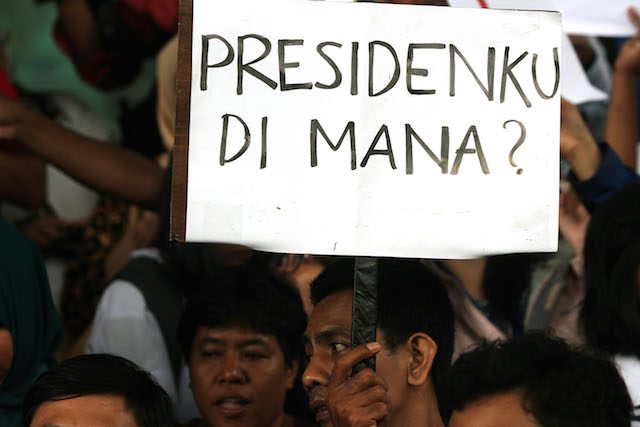
JAKARTA, Indonesia – Amid calls for him to intervene in the growing tension between the National Police and the Corruption Eradication Commission (KPK), President Joko “Jokowi” Widodo gave only a brief statement on Friday afternoon that did not give any indication he was inclined to do so.
“I told the KPK chairman and National Police deputy chief that, as the head of state, I’m asking the police institution and the KPK to ensure that the legal process is objective and in line with the law,” Jokowi said in a televised press conference after meeting with the leaders of the two institutions along with Vice President Jusuf Kalla and several ministers.
“I also asked, as head of state, that there be no friction between the police institution and the KPK in carrying out their respective duties.
“These are the two things that I have to say and we hope everyone, especially the media, cover things objectively.”
Police and Jokowi’s party vs KPK
Jokowi’s statement did little to address the controversy sparked by the arrest early on Friday of KPK deputy chairman Bambang Widjojanto in Depok, West Java, just outside Jakarta. (READ: Indonesia’s political crisis deepens with arrest of antigraft official)
Jokowi just made a useless statement that does nothing to resolve tension between KPK & police. He should never have let it come to this.
— sidney jones (@sidneyIPAC) January 23, 2015
But it’s become evident that the KPK’s conflict is not only with the police but also with Jokowi’s party, the Indonesian Democratic Party of Struggle (PDI-P).
Bambang was arrested after taking his son to school over a complaint filed on January 19, 2015, by Sugianto Sabran, a PDI-P legislative candidate from Central Kalimantan, in relation to a local election dispute that took place back in 2010.
‘This is a legal case but there is a political context to this’
– Bambang Widjojanto’s lawyer
In the complaint, Bambang is accused of instructing a person to lie to the court in order to win the case, for which he was serving as a lawyer. Perjury is punishable by up to 7 years in jail. The case happened before he was appointed KPK commissioner.
The arrest is widely seen, however, as retaliation for the KPK’s naming of Comr. Gen. Budi Gunawan a corruption suspect on January 13, 2015, a few days after Jokowi named him the sole National Police chief nominee.
Budi was the adjutant of PDI-P chairwoman Megawati Sukarnoputri, Jokowi’s politican patron. (READ: Jokowi faces first major political crisis)
Bambang’s arrest also comes a day after PDI-P leaders accused KPK chairman Abraham Samad of naming Budi a suspect in retaliation for his not being selected as Jokowi’s running mate.
“This is a legal case but there is a political context to this,” Bambang’s lawyer, Nursyahbani Katjasungkana, told reporters at the National Police headquarters.
KPK earlier said the National Police agreed to release Bambang on Friday afternoon, but that has not yet happened as of early evening in Jakarta.
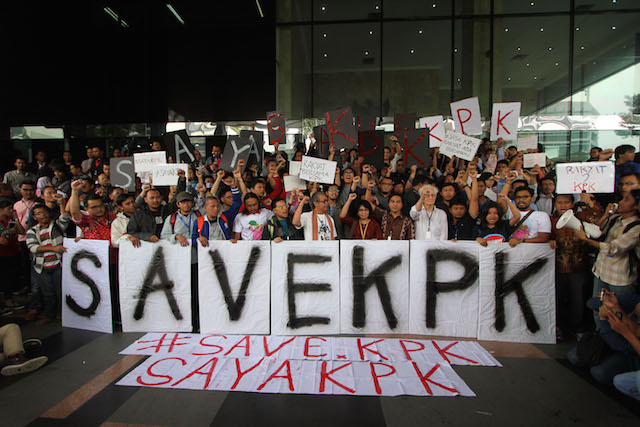
Support for KPK, criticisms for Jokowi
Meanwhile, at the KPK headquarters, other antigraft officials and activists issued strong statements denouncing Bambang’s arrest and called on people to “unite against corruption and those that hinder efforts to combat corruption.”
Public sentiment has always been strongly behind KPK. The antigraft agency remains to be the most trusted public institution in Indonesia, having jailed several high-ranking politicians from almost all political parties and government officials over the years, including police generals. As a result, it has a history of conflicts with politicians, the police, lawmakers and the prosecutor’s office. (READ: Learning from Indonesia’s corruption crackdown)
Because of this, public sentiment is usually negative towards individuals and institutions that are seen to threaten or attack the KPK.
On Friday, as prominent activists and civil society leaders expressed their support for the agency, some even said former President Susilo Bambang Yudhoyono handled the previous instances of tension between the two institutions better.
“When compared to SBY, SBY is better than Jokowi (in this case),” said Zainal Arifin Mochtar, the director of the Center for Anti-Corruption Studies at the University of Gadjah Mada’s School of Law.
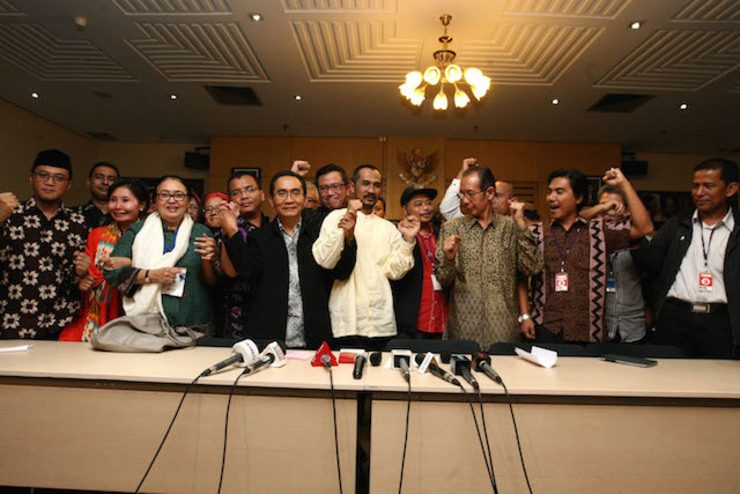
The sentiments expressed in favor of Yudhoyono on Friday were surprising, given that the former president was also criticized for issuing similar statements of non-intervention in the two cases of police-KPK conflict under his administration.
However, KPK has confirmed that Yudhoyono sought their advice before nominating a police chief, which Jokowi did not do with Budi Gunawan.
The crisis comes as Jokowi, who was voted into office on a promises of a clean government, is about to mark his first 100 days in office.
Legal institutions such as the KPK should be strengthened, Jokowi said on the campaign trail June 26, 2014. “In the future, the KPK needs to be strengthened, its budget needs to be increased,” he said. – with reports from ATA, Febriana Firdaus, Dio Damara/Rappler.com
Add a comment
How does this make you feel?

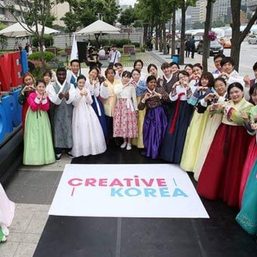


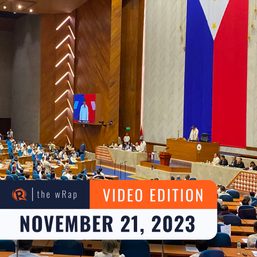


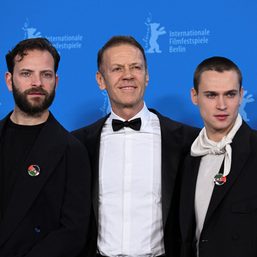



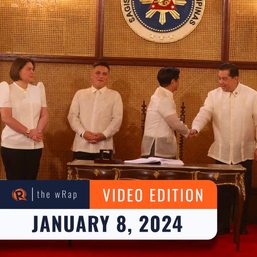
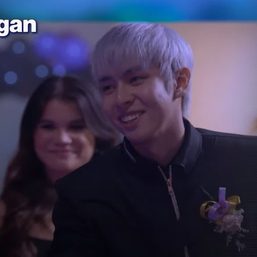


There are no comments yet. Add your comment to start the conversation.